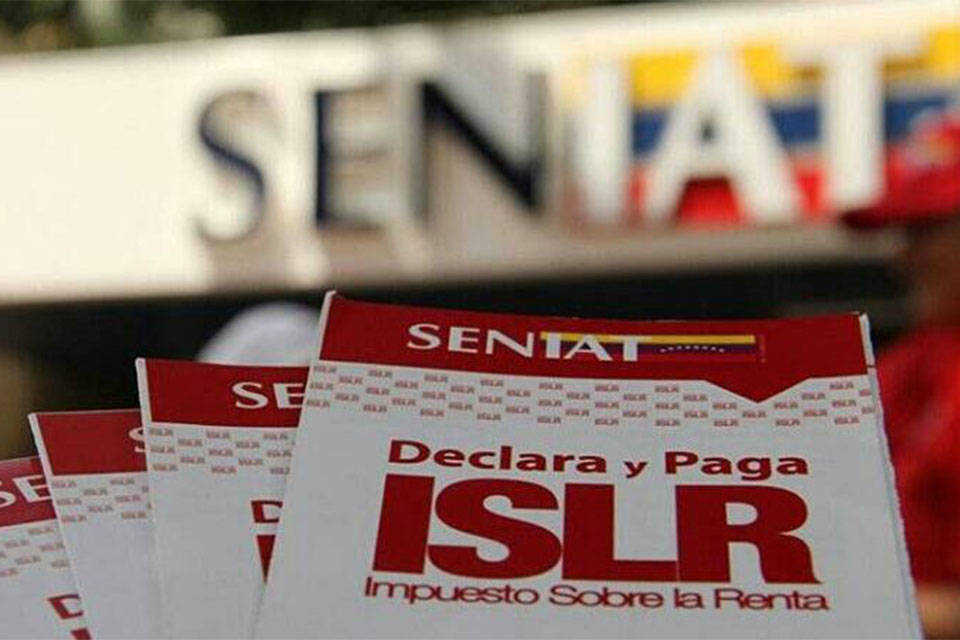In recent years, government authorities have changed the Tax Unit (UT) as a measure to determine the rates and prices of contributions for services provided by public entities. SuchWhich explains which procedures and organizations are governed by the UT, by the exchange rate or by the petro
The Venezuelan legislative framework raises the Tax Unit (UT) as the main parameter to define amounts and rates for all types of contributions or payments to state agencies, but the devaluation of the bolivar dragged down the value of this figure and Chavismo turned a blind eye. despite the fact that the laws indicate that the amount must be updated every year.
The UT was implemented in 1994 with the specific function of correcting the nominal values provided for rates, contributions, tariffs and other types of elements present in the Venezuelan legislative framework. that could be modified by inflation and the depreciation of the bolivar.
For this reason, the Organic Tax Code was expected to be updated annually based on the National Consumer Price Index (INPC) kept by the Central Bank of Venezuela (BCV).
The tax authority ignored this rule and during the years in which the economy suffered from hyperinflation, the UT lagged behind to such a point in which all the amounts that depended on this unit of measure, became merely symbolic.
The illegitimate and defunct constituent assembly was in charge of dealing the final blow to the UT, definitively separating it from the INPC. Instead, now this unit of measurement would be defined at the discretion of the Seniat.
“Due to its nature of objective determination and simple arithmetic application, the National Tax Administration will readjust the value of the Tax Unit in accordance with the provisions of this Code,” the instrument establishes.
The depreciation of the rates set by the UT covered a period between 2017 and 2020, the year in which other mechanisms began to emerge for the determination of taxes, rates or special contributions for the services provided by government entities.
Currently, different parameters are used depending on each entity. Some use the UT, others the exchange rate and others the petro. In this sense, each one has a different value variation, since the appreciation of the exchange rate and the petro is constant, in the case of the UT it is determined when the authorities decide.
The few tariffs and taxes that continue to depend on the UT faced a period of virtual absence in recent years, with a UT set at a few bolivar cents. However, the situation has changed since May 8, when its value increased.
The National Integrated Customs and Tax Administration Service (Seniat) adjusted the price of the UT from 0.40 to 9 bolivars, according to the Administrative Ruling published in the Official Gazette 42,623. This implies an increase of 2,150% that triggers the prices of various commitments, mainly before the tax authority.
To clarify how this adjustment affects the citizen and his commitments before the State, SuchWhich makes a list with the parameter that is used to collect the most common taxes, procedures and fees in the main public bodies.
- Income Tax (ISLR): The main tax to declare before the Seniat for the annual enrichment of taxpayers is determined by the UT. The Law of income tax dictates that individuals with net annual earnings greater than 1,000 UT or with gross annual earnings greater than 1,500 UT will pay the ISLR.
Before the adjustment, with the UT at Bs 0.40, any salaried worker had to pay this amount, since the minimum annual enrichment to owe the treasury was barely Bs 400, that is, four months of minimum wage. With the UT at Bs 9, this parameter changes to Bs 9,000 per year, equivalent to $346.
- Tax on Large Financial Transactions (IGTF): The well-known “dollar tax” is also determined by the TUs, since the reform of this Law imposes a 3% tax on any transaction made to a natural or legal person considered a “special taxpayer”, which, according to the Providence No. 0685, refers to natural persons with gross annual income of 7,500 UT or more and legal persons with gross annual earnings of 30,000 UT or more.
Before the adjustment, the 7,500 UT was equivalent to Bs 3,000 ($115) and the 30,000 UT to Bs 12,000 ($461), amounts that any economic actor easily exceeds annually. However, with the UT at Bs 9 these amounts change to Bs 67,500 ($2,596) and Bs 270,000 ($10,384), so any individual or company could be left out of this requirement.
*Read also: Reform of the Tax Law on Large Transactions is based on the most needy
- Tax sanctions: Although the adjustment of the UTs set off the alarms in terms of sanctions for non-compliance before the Seniat because they were governed by this figure. This has changed since the National Assembly (AN) elected in 2020 reformed the Organic Tax Code and fixed the fines at the exchange rate determined by the Central Bank of Venezuela (BCV).
The tax offenses contemplated in the Organic Tax Code range from 5 times the exchange rate to 2,000 times the official exchange rate. Depending on the case, tax percentages are established, ranging from 30% to 1,000% of the tax.
- Transit taxes: The National Institute of Land Transportation (INTT) anchored the rates for the provision of its services to the petro from October 1, 2022. Although this modification did not include fines, but only the procedures, the mayors took action on the matter before the backlog of the UT and they also implemented the petro as a parameter at the time of sanctioning.
- Registry and notary services: All the procedures that are managed before the Autonomous Service of Registries and Notaries (Saren) maintain rates dependent on the petro, according to the Presidential Decree No. 4,096.
- Identification, migration and immigration services: All procedures related to the identity of Venezuelans are handled by the Autonomous Identification, Migration and Immigration Service (Saime). The rates charged by this entity for its services are reflected in petros, also in accordance with what is indicated in Presidential Decree No. 4,096.
- Other services: Presidential Decree No. 4,096 ordered the use of the petro for the services of many organizations, with the intention that prices fluctuate based on the appreciation of the dollar —since the petro is equivalent to $60—, so that it shields itself from the depreciation of the bolivar and from the UT. The other entities included were the Autonomous Service of Intellectual Property (SAPI), the National Pipeline Institute (INC), Bolivarian Ports (Bolipuertos), the National Institute of Aquatic Spaces (INEA), the National Institute of Civil Aeronautics ( INAC), the Maiquetía International Airport Institute (IAIM) and Bolivarian Airports (BAER).
*Also read: Seniat collects 31% more taxes than the first quarter of 2022 due to inflation
UT adjustment for convenience
The administrative order of the Seniat through which the UT was adjusted clarifies that this measure will only have repercussions for the services provided by this regulatory body. Article 2 emphasizes that the UT cannot be used to determine special taxes by any other body or entity of public power.
“The value of the UT may only be used as a unit of measurement for the determination of national taxes whose collection and control are the responsibility of the Seniat, and may not be used by bodies and entities of the public power to determine labor benefits or of rates and special contributions of the services they provide”, he indicates.
The constant change in the rules governing the pricing of fees, fines, contributions and procedures in the public administration has had an impact on a population whose purchasing power has been hit after suffering the ravages of a decade of economic contraction.
Changing the UT for the petro as a mechanism to adjust prices for public procedures before most of the entities caused many Venezuelans to face problems even to acquire an identity document, since processing the passport costs 3.6 petros, equivalent to $216 according to the official exchange rate of Bs 26 per currency, published by the BCV for this May 25.
From the business side, tax policy is also an obstacle to growth and production. The excessive amount of taxes and fees applied by the authorities make business activity uphill.
For this reason, unions such as the National Council of Commerce and Services (Consecomercio) have requested a reduction in the policy, arguing that excessive taxes are counterproductive, by pushing companies that cannot assume the burden into informality. tax.
*Read also: Consecomercio: high taxes push commerce to informality
Post Views: 281








